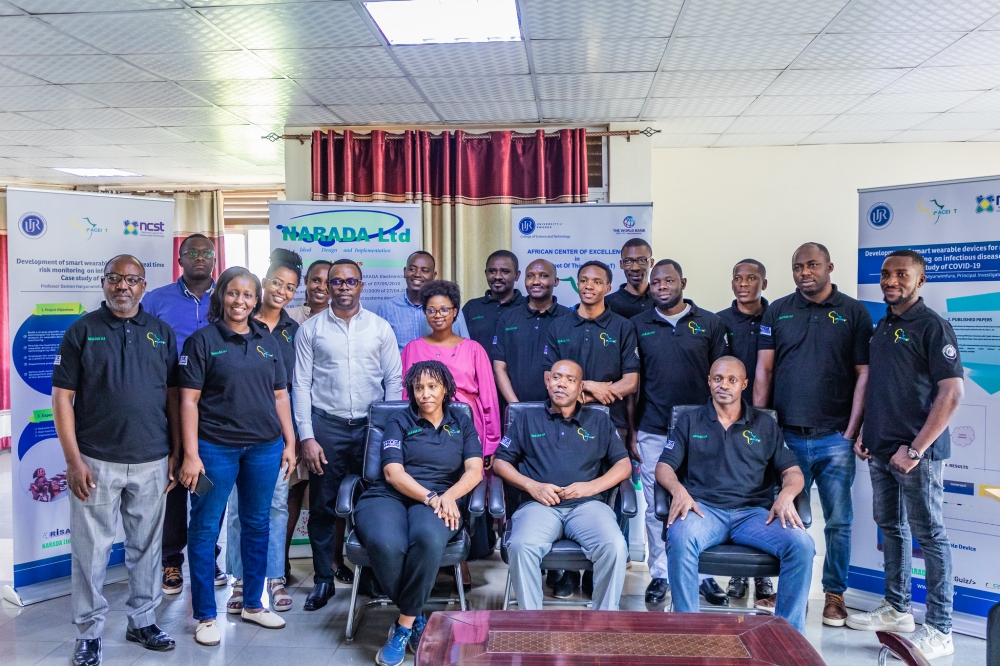

The University of Rwanda, through the African Center of Excellence in Internet of Things(ACEIoT) at the College of Science and Technology, has been working on a project to create a smart wearable device that monitors health data, like temperature and heart rate. This will help detect the risk of spreading viruses.
The project, titled "Development of a Smart Wearable Device for Real-Time Risk Monitoring of Infectious Virus Spreading: Case Study of COVID-19”, has been funded by the National Council for Science and Technology (NCST) and was implemented by the ACEIoT in collaboration with the Rwanda Biomedical Centre (RBC), Rwanda Information System Authority (RISA), and NARADA LTD as private partner.
This smart wearable device has been presented to UR researchers such as academic staff and postgraduate students during the project results dissemination and closure workshop that was held on August 7, 2024 at the College of Science and Technology.
The smart wearable device can sense an individual’s body temperature, heart rate, oxygen saturation, cough rate and then monitor the user’s location like GPS.


Damien Hanyurwimfura, a professor, project leader and acting Director of ACEIoT, said they started the project during the Covid-19 pandemic. However, as the situation with Covid has improved, they are looking on how to adapt the project to another use case that is in high interest of the country.
"This technology can be used for any contagious disease. We even have documentation proving that the device is market-ready if we secure the necessary funding. This is not limited to Covid-19; it can be used for any disease where IoT devices are applicable," he said.
Hanyurwimfura noted that this device can be worn by anyone, not just those who are sick, to provide protection.
Additionally, since it includes GPS, it can track your location and notify you if you enter an area that could affect you and get contaminated with a certain disease. You can also connect it to your phone, and if any issue arises, the information is sent to the Rwanda Biomedical Centre (RBC) for follow-up.
Marvin Ogore, from NARADA, and also one of the students who worked on the project, said the device was created in order to measure vital signs of Covid-19 parameters.
"The common parameters were temperature, blood oxygen level, and blood pressure. Those are the key parameters we are looking at. And temperature because of fever, and to detect whether it can check if someone is coughing or not.”
Ogore mentioned that the device is intended to help with social distancing by detecting if someone is within three metres of you.
Additionally, it can detect proximity to someone who has tested positive for Covid-19 and alerts the user to move away. The device continuously monitors the user's status and proximity to Covid-19 positive individuals, providing real-time feedback on safety.
Prof Thelesphore Kabera, from Director of Research and Innovation at the College of Science and Technology, explained that as a public institution, they have three main pillars: supporting the government through education, research, and community outreach.
"This project involves the development of a system for continuous monitoring of infectious virus spread, aligning with our three pillars of government support.
"While students worked on the project, they were gaining knowledge, conducting research, and ultimately contributing to the community, which will be using this device,” Kabera said.


